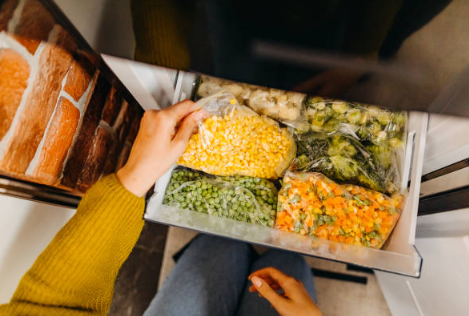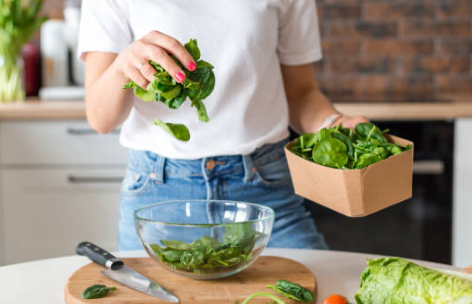Your body requires a steady supply of protein to perform essential functions—like building muscle, producing hormones and neurotransmitters, and absorbing nutrients.
If you follow a typical balanced diet that includes both animal and plant sources, meeting your daily protein needs is usually manageable. But for those following a plant-based diet, it can be trickier to build meals and snacks rich in protein—especially since many plant foods are relatively low in this crucial macronutrient.
The good news? There are plenty of plant-based foods, including several vegetables, that are surprisingly high in protein.
Below are 10 high-protein vegetables you can incorporate into your meals—plus tips on how to increase your protein intake on a plant-forward diet.

1. Lentils
There’s a reason dietitians love lentils. These little legumes are loaded with plant-based protein, plus key nutrients like folate, iron, magnesium, and potassium.
-
1 cup of lentils = 17.9 grams of protein
That’s nearly 30% more protein than you’d get from two large eggs!
2. Kidney Beans
Like lentils, kidney beans are rich in protein and packed with nutrients—especially folate, a vitamin that’s critical during pregnancy for fetal development.
-
1 cup of kidney beans = ~58% of your daily folate needs
3. Green Peas
Green peas are an underrated veggie that deserve more space on your plate. Just 1 cup delivers a solid dose of protein, along with over 20% of your daily needs for vitamins A, C, and K, plus folate and thiamin (vitamin B1).
4. Black Beans
Black beans are another excellent way to boost your protein intake. They pair well with a wide variety of dishes and add both flavor and nutrition.
They’re also a great source of magnesium, a mineral that plays a major role in stress regulation.
5. Edamame (Young Soybeans)
Believe it or not, 1 cup of edamame contains more protein than 2 cups of milk! That same serving also provides:
-
100%+ of your daily folate needs
-
52% of your daily vitamin K—important for bone health and blood clotting
6. Peanuts
Often mistaken for nuts, peanuts are actually legumes—and they’re a protein powerhouse. Peanut butter and whole peanuts work in both sweet and savory recipes.
In addition to protein, they’re high in magnesium, folate, and vitamin E, a potent antioxidant that protects cells from damage.

7. Spinach
While spinach isn’t the highest-protein veggie overall, it’s relatively rich compared to other non-starchy vegetables. In fact, 1 cup of cooked spinach contains 260% more protein than a cup of zucchini.
Spinach is also packed with vitamins A, C, K, plus calcium, iron, and magnesium.
8. Fava Beans
If you’ve never tried fava beans, you might be surprised by their smooth, buttery texture and rich flavor. These protein-packed beans also deliver over 15 essential minerals, including magnesium, copper, potassium, and zinc.
9. Asparagus
This springtime favorite is surprisingly high in protein—over 4 grams per cup. Asparagus is also loaded with flavonoid antioxidants, and is a great source of vitamins A, C, K, and folate.
10. Artichoke Hearts
Artichokes are best known for their fiber content. Just 1 cup of artichoke hearts packs:
-
9.69 grams of fiber
That’s about 34% of your daily recommended fiber intake.
They also contain a modest amount of plant protein, along with vitamins C and K, folate, and important minerals like magnesium and potassium.
How to Get Enough Protein on a Plant-Based Diet
It’s absolutely possible to meet your protein needs on a plant-based diet—you just need to be intentional with your meals and snacks.
A few quick reminders:
-
The current Recommended Dietary Allowance (RDA) for protein is 0.8 grams per kilogram of body weight (or 0.36 grams per pound).
But this is a minimum to prevent deficiency—not necessarily the optimal intake. -
Most experts suggest that active individuals aim for 1.2 to 2.0 grams per kilogram (about 0.54 to 0.9 grams per pound) for ideal performance and muscle maintenance.
Final Thoughts
If you’re looking to boost your plant-based protein intake, consider adding more high-protein vegetables like lentils, black beans, peas, peanuts, and spinach to your meals and snacks.
These—and other protein-rich plant foods—can help you hit your goals and feel your best, whether you’re training hard or just trying to eat healthier.